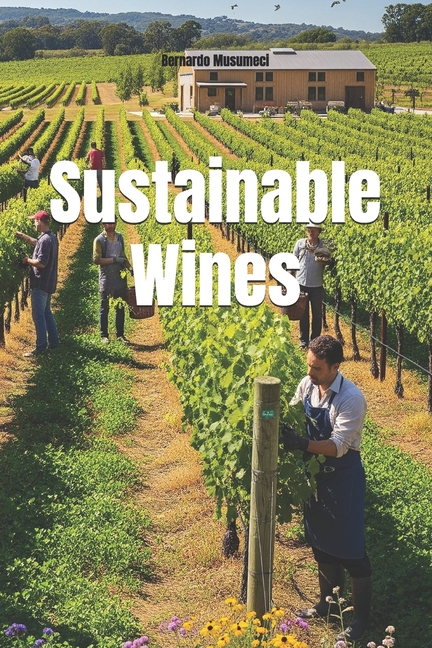Description
A brief introduction to the growing importance of sustainability in today's world and how this trend is reflected in the wine market.
Presentation of the ebook proposal: guiding the consumer on the journey towards a more conscious consumption of wines, unveiling the concepts, practices and challenges of sustainability in winemaking.
An invitation to reflect on the impact of our consumption choices and the role of each person in building a more sustainable future.
Awakening to Sustainable Consciousness in the World of Wine
The awakening of the conscious consumer:
Changes in consumer behavior, seeking products with less environmental and social impact.
Increased demand for transparency and traceability in the production chain.
Growing interest in certifications and seals that attest to the sustainability of products.
Why is sustainability in wine production important?
Impact of conventional viticulture on the environment: use of pesticides, soil degradation, excessive water consumption.
Risks to human health: exposure to pesticide residues, water contamination.
The need to preserve natural resources for future generations.
Benefits of sustainable wines for health and the environment:
Healthier wines, free of toxic residues.
Preservation of biodiversity and ecosystems.
Reducing the carbon footprint and mitigating climate change.
The role of the consumer in promoting sustainability:
The power of consumer choice as a tool for transformation.
Support for producers who adopt sustainable practices.
Dissemination of information and awareness.
Understanding Sustainability in Viticulture
Principles of sustainable viticulture:
Balance between environmental, social and economic aspects.
Long-term vision, ensuring the sustainability of the business and the preservation of natural resources.
Continuous improvement of practices, seeking to reduce environmental impact and maximize social benefits.
Sustainable practices in the vineyard:
Solo handling:
Use of vegetation cover to control erosion and increase soil fertility.
Organic fertilizer, with compost and animal manure.
Minimum plowing and direct planting, preserving soil structure.
Water management:
Efficient irrigation systems, such as drip and micro-sprinkler.
Capture and reuse of rainwater.
Monitoring water consumption and preventing waste.
Pest and disease control:
Biological control, using natural predators and traps.
Use of natural products, such as plant extracts and essential oils.
Integrated pest management, combining different control techniques.
Use of renewable energy:
Installation of solar panels to generate electrical energy.
Use of biomass for heating and cooling.
Optimization of energy consumption in winery facilities.
Biodiversity:
Preservation of natural areas within the property.
Planting trees and hedges to attract pollinators and control pests.
Creating habitats for wild animals.
The importance of terroir in sustainability:
Terroir as an expression of the interaction between soil, climate, topography and grape variety.
The preservation of the terroir as a guarantee of the typicality and quality of the wines.
Sustainability as a way of valuing and protecting terroir.
Organic and Biodynamic Viticulture
Organic viticulture: principles and practices:
Elimination of the use of pesticides and synthetic fertilizers.
Promoting soil and plant health.
Respect for the ecological balance of the vineyard.
Organic wine certifications and seals:
Product Details
- Jul 7, 2025 Pub Date:
- 9798291353646 ISBN-10:
- 9798291353646 ISBN-13:
- English Language




